A Filmmaker's Guide: "Les Enfants Terrible" (1950)
Film Studies (p.164)
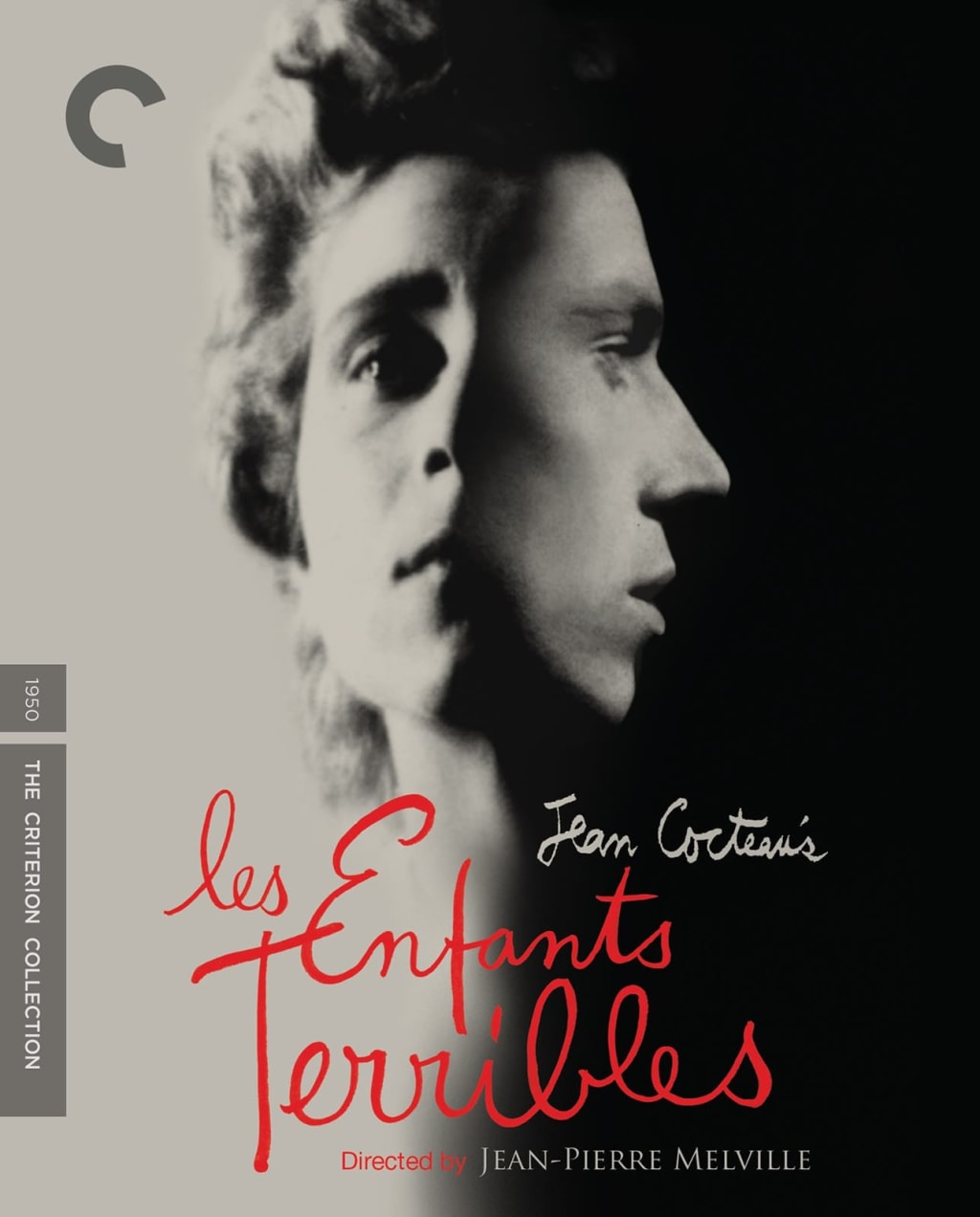
In this chapter of ‘the filmmaker’s guide’ we’re actually going to be learning about literature and film together. I understand that many of you are sitting in university during difficult times and finding it increasingly hard to study and I understand that many of you who are not at university or not planning on it are possibly stuck of what to do, need a break or even need to catch up on learning film before you get to the next level. This guide will be brief but will also contain: new vocabulary, concepts and theories, films to watch and we will be exploring something taboo until now in the ‘filmmaker’s guide’ - academia (abyss opens). Each article will explore a different concept of film, philosophy, literature or bibliography/filmography etc. in order to give you something new to learn each time we see each other. You can use some of the words amongst family and friends to sound clever or you can get back to me and tell me how you’re doing. So, strap in and prepare for the filmmaker’s guide to film studies because it is going to be one wild ride.
"Les Enfants Terrible"
Jean Pierre Melville directed this 1950 feature based on his friend, Jean Cocteau's 1929 novel of the same name with Cocteau doing the voice-over narration. This is a film that I think resembles a Macbeth type of situation with the sister as Lady Macbeth - especially as she has that moment of quoting Lady Macbeth's Act 5, Scene 1 breakdown concerning the '...perfumes of Arabia.' The cinematography definitely reflects the way in which this juxtaposition between good and evil works with most of us thinking the wrong thing (if you haven't read the book) beforehand and coming to realise who the villain actually is.
Scene #1
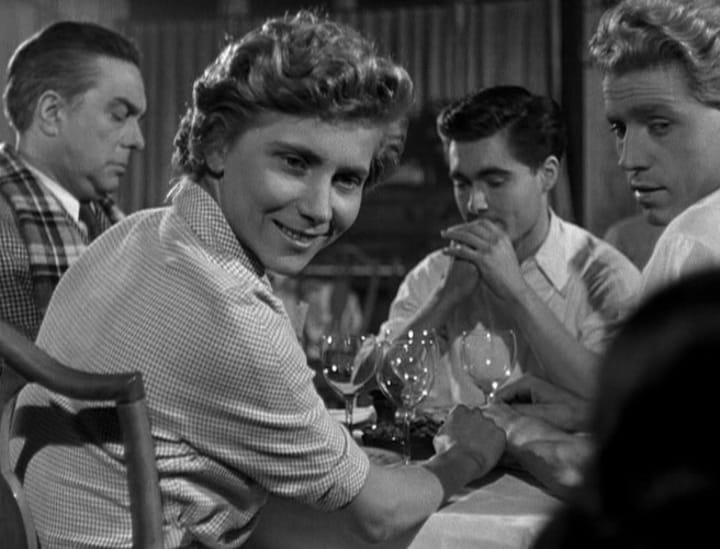
The dominant force is definitely the sister and we come to realise how evil she actually is. But in this scene in which the sister suggests that they both stick their tongues out at a little girl solidifies this case of mischievous evil that the audience had already suspected all along. This is really the beginning of the 'mischief' that sets in motion the rest of the film, a foreshadowing of events yet to come. If we were to pretend that the little girl was actually the sister's modelling friend and that the action of sticking out her tongue was actually a manipulation of emotions then we can definitely see how that works.
Scene #2
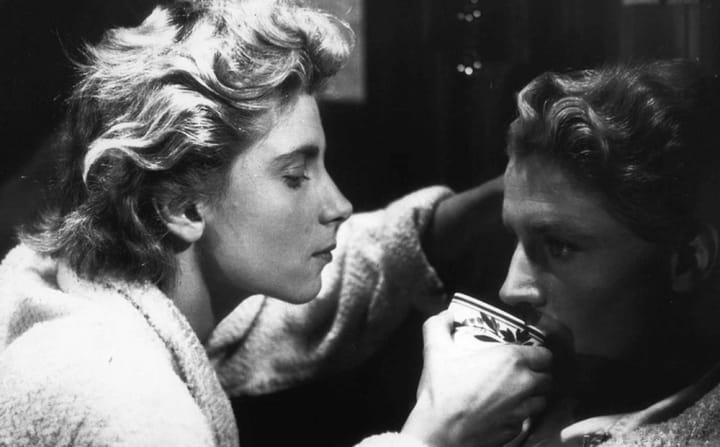
When her brother is somewhat disabled by a deflective snowball, the sister does not come to the 'rescue' per se - instead she comes to cause him what is known today as cognitive dissonance and 'gaslighting'. This woman is a complete 'Lady Macbeth' figure who emasculates the other person in this sibling war. Just looking at how she treats him in this frame alone suggests both care and belittling.
Scene #3
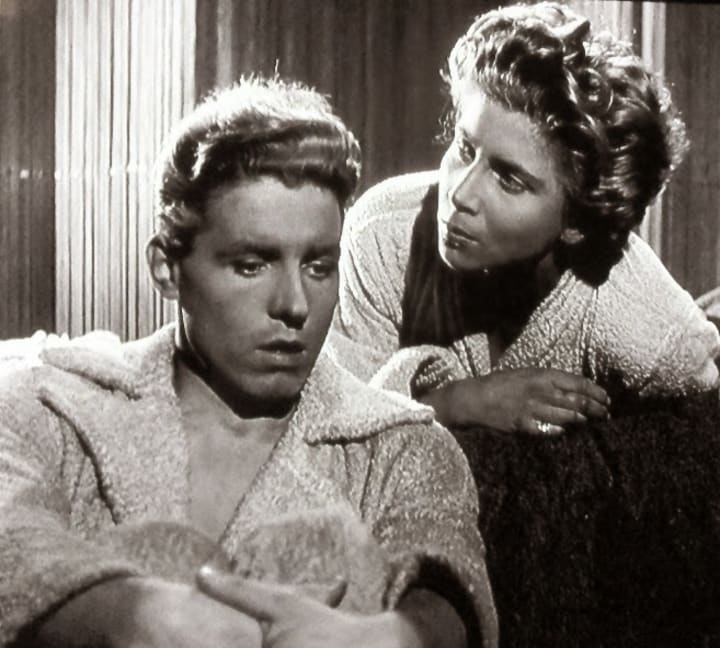
This scene is probably one of the most telling as it presents a slightly different side to this sister. She is presented here as genuinely concerned in an act of dramatic irony. The audience is fully aware that she does not care for her brother's feelings or identity, but the brother is not fully aware, let us suggest that he is half-aware. But, in reality - the sister is asserting her power even when acting out as caring. This is done through patronising her brother and asking him leading questions to get him to say what she wants him to say.
Conclusion
This film is one of the best films of 1950 and there is so much to study from this. I would suggest if you haven't done so already, to read the book that goes along with it first.
About the Creator
Annie Kapur
200K+ Reads on Vocal.
English Lecturer
🎓Literature & Writing (B.A)
🎓Film & Writing (M.A)
🎓Secondary English Education (PgDipEd) (QTS)
📍Birmingham, UK





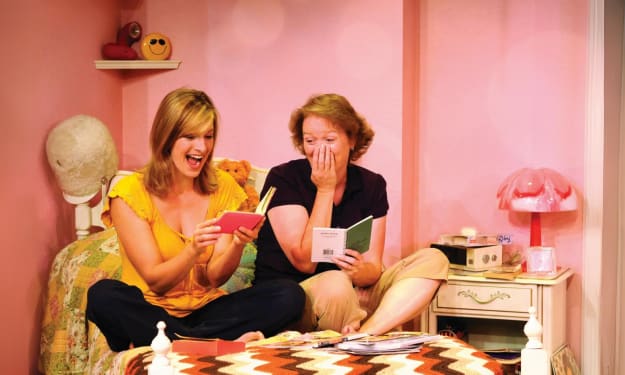

Comments
There are no comments for this story
Be the first to respond and start the conversation.